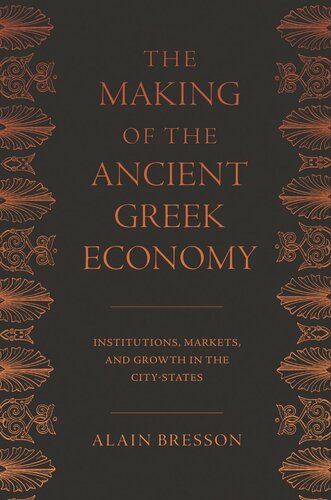

Most ebook files are in PDF format, so you can easily read them using various software such as Foxit Reader or directly on the Google Chrome browser.
Some ebook files are released by publishers in other formats such as .awz, .mobi, .epub, .fb2, etc. You may need to install specific software to read these formats on mobile/PC, such as Calibre.
Please read the tutorial at this link: https://ebookbell.com/faq
We offer FREE conversion to the popular formats you request; however, this may take some time. Therefore, right after payment, please email us, and we will try to provide the service as quickly as possible.
For some exceptional file formats or broken links (if any), please refrain from opening any disputes. Instead, email us first, and we will try to assist within a maximum of 6 hours.
EbookBell Team

0.0
0 reviewsThis comprehensive introduction to the ancient Greek economy revolutionizes our understanding of the subject and its possibilities. Alain Bresson is one of the world's leading authorities in the field, and he is helping to redefine it. Here he combines a thorough knowledge of ancient sources with innovative new approaches grounded in recent economic historiography to provide a detailed picture of the Greek economy between the last century of the Archaic Age and the closing of the Hellenistic period. Focusing on the city-state, which he sees as the most important economic institution in the Greek world, Bresson addresses all of the city-states rather than only Athens.
An expanded and updated English edition of an acclaimed work originally published in French, the book offers a groundbreaking new theoretical framework for studying the economy of ancient Greece; presents a masterful survey and analysis of the most important economic institutions, resources, and other factors; and addresses some major historiographical debates. Among the many topics covered are climate, demography, transportation, agricultural production, market institutions, money and credit, taxes, exchange, long-distance trade, and economic growth.
The result is an unparalleled demonstration that, unlike just a generation ago, it is possible today to study the ancient Greek economy as an economy and not merely as a secondary aspect of social or political history. This is essential reading for students, historians of antiquity, and economic historians of all periods.